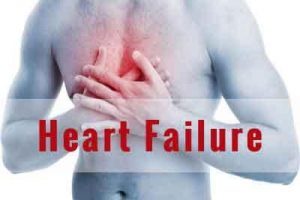- Home
- Editorial
- News
- Practice Guidelines
- Anesthesiology Guidelines
- Cancer Guidelines
- Cardiac Sciences Guidelines
- Critical Care Guidelines
- Dentistry Guidelines
- Dermatology Guidelines
- Diabetes and Endo Guidelines
- Diagnostics Guidelines
- ENT Guidelines
- Featured Practice Guidelines
- Gastroenterology Guidelines
- Geriatrics Guidelines
- Medicine Guidelines
- Nephrology Guidelines
- Neurosciences Guidelines
- Obs and Gynae Guidelines
- Ophthalmology Guidelines
- Orthopaedics Guidelines
- Paediatrics Guidelines
- Psychiatry Guidelines
- Pulmonology Guidelines
- Radiology Guidelines
- Surgery Guidelines
- Urology Guidelines
Serelaxin does not reduce fatalities in Acute Heart Failure patients

An infusion of serelaxin does not reduce fatalities from cardiovascular causes at 180 days or worsen heart failure at 5 days than placebo in patients hospitalized for acute heart failure, according to a study published in the New Englands Journal of Medicine.
Serelaxin is a recombinant form of human relaxin-2, a hormone that (among other functions) is produced during pregnancy and mediates the hemodynamic changes that occur during this time, such as increased blood output of the heart and blood flow in the kidney. Previous studies have suggested that treatment with serelaxin may result in relief of symptoms and in better outcomes in patients with acute heart failure.
In this multicenter, double-blind, placebo-controlled, event-driven trial, the authors enrolled patients who were hospitalized for acute heart failure and had dyspnea, vascular congestion on chest radiography, increased plasma concentrations of natriuretic peptides, mild-to-moderate renal insufficiency, and a systolic blood pressure of at least 125 mm Hg, and randomly assigned them within 16 hours after presentation to receive either a 48-hour intravenous infusion of serelaxin (30 μg per kilogram of body weight per day) or placebo, in addition to standard care. The two primary endpoints were death from cardiovascular causes at 180 days and worsening heart failure at 5 days.
- A total of 6545 patients were included in the intention-to-treat analysis.
- At day 180, death from cardiovascular causes had occurred in 285 of the 3274 patients (8.7%) in the serelaxin group and in 290 of the 3271 patients (8.9%) in the placebo group.
- At day 5, worsening heart failure had occurred in 227 patients (6.9%) in the serelaxin group and in 252 (7.7%) in the placebo group.
- There were no significant differences between the groups in the incidence of death from any cause at 180 days, the incidence of death from cardiovascular causes or rehospitalization for heart failure or renal failure at 180 days, or the length of the index hospital stay. The incidence of adverse events was similar in the two groups.
"In this trial involving patients who were hospitalized for acute heart failure, an infusion of serelaxin did not result in a lower incidence of death from cardiovascular causes at 180 days or worsening heart failure at 5 days than placebo." Concluded the authors.

Disclaimer: This site is primarily intended for healthcare professionals. Any content/information on this website does not replace the advice of medical and/or health professionals and should not be construed as medical/diagnostic advice/endorsement or prescription. Use of this site is subject to our terms of use, privacy policy, advertisement policy. © 2020 Minerva Medical Treatment Pvt Ltd